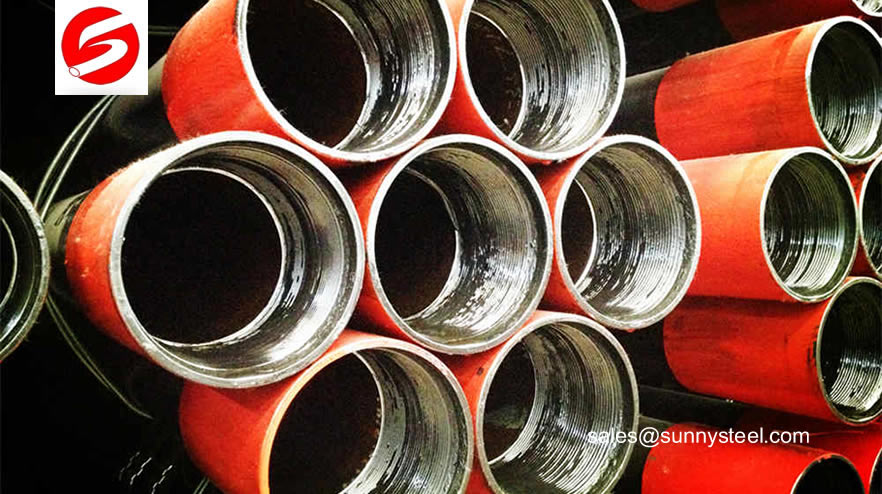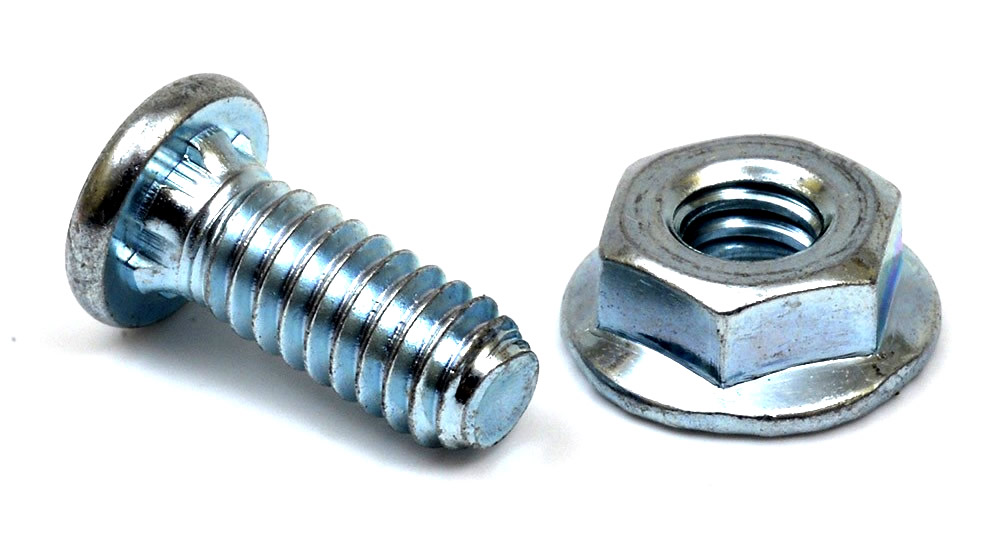ASTM A213 Alloy Tubes are been widely used in high temperature services especially for the boiler and superheater.
PMI test for ASTM A213 T91 tubes
ASTM A213 Alloy Tubes material could be in alloy steel and stainless steel, and manufactured in seamless of hot rolled or cold drawn. So this pipe usually used in very important places and the price is much higher than normal carbon pipes.
Sunny Steel Supply stocks a full range of the following ASTM A213 grades:
Main grades: ASTM A213 T5, T5b, T9, T11, T91 and T22
SA 213 standard specification for seamless ferritic and austenitic alloy-steel boiler,super heater,and heat-exchanger tubes.
1. Surface state:
Austenitic steel pipe should be washed to remove the scale, when the use of bright annealing, you do not need pickling.
2. Chemical analysis of finished products:
It shall be analyzed from one billet or one pipe per furnace, and the chemical composition determined accordingly shall meet the specified requirements.
3. Mechanical test and grain size:
(1) Tensile test:Such as each batch of steel pipe ≤ 50 root, then take a sample for tensile test; each batch of steel pipe> 50, then two steel pipes should take two samples for tensile test.
(2) Flattening test: in each batch of a finished tube at both ends of each sample to take a flattening test, but the root can not used as a flaring sample.
(3) Flaring test: in each batch of a finished tube at both ends of a sample for a flaring test, but the root canal can not be used as a flattening sample.
(4) Hardness test: from each batch of two tubes on the sample to do Brinell or Rockwell hardness test.
(5) Water pressure test: each pipe should be hydrostatic test. When the buyer is specified, a non-destructive test may be used instead.
(6) Grain size: according to ASME E112 standard test.
Size range:
- NPS 1/4'' to NPS 24''
- Wall Thickness - Schedules 40 through 160, STD, XS, XXS.
- Unscheduled heavy wall pipe thicknesses available up to 4 inches.
ASTM A213 Standard Scope:
ASTM A213 Standard Specification for Seamless Ferritic and Austenitic Alloy-Steel Boiler, Superheater, Heat-Exchanger Tubes.
1.1 This specification covers seamless ferritic and austenitic steel boiler, superheater, and heat-exchanger tubes, designated Grades T91, TP304, etc. These steels are listed in Tables 1 and 2.
1.2 Grades containing the letter, H, in their designation, have requirements different from those of similar grades not containing the letter, H. These different requirements provide higher creep-rupture strength than normally achievable in similar grades without these different requirements.
1.3 The tubing sizes and thicknesses usually furnished to this specification are 1/8 in. [3.2 mm] in inside diameter to 5 in. [127 mm] in outside diameter and 0.015 to 0.500 in. [0.4 to 12.7 mm], inclusive, in minimum wall thickness or, if specified in the order, average wall thickness. Tubing having other diameters may be furnished, provided such tubes comply with all other requirements of this specification.
1.4 The values stated in either SI units or inch-pound units are to be regarded separately as standard. Within the text, the SI units are shown in brackets. The values stated in each system may not be exact equivalents; therefore, each system shall be used independently of the other. Combining values from the two systems may result in non-conformance with the standard. The inch-pound units shall apply unless the “M” designation of this specification is specified in the order.
Chemical composition(%) for ASTM A213
| Grade | UNS Designation | C | Mn | P | S | Si |
| T2 | K11547 | 0.10–0.20 | 0.30–0.61 | 0.025 | 0.025B | 0.10–0.30 |
| T5 | K41545 | 0.15 | 0.30–0.60 | 0.025 | 0.025 | 0.5 |
| T5b | K51545 | 0.15 | 0.30–0.60 | 0.025 | 0.025 | 1.00–2.00 |
| T5c | K41245 | 0.12 | 0.30–0.60 | 0.025 | 0.025 | 0.5 |
| T9 | K90941 | 0.15 | 0.30–0.60 | 0.025 | 0.025 | 0.25–1.00 |
| T11 | K11597 | 0.05–0.15 | 0.30–0.60 | 0.025 | 0.025 | 0.50–1.00 |
| T12 | K11562 | 0.05–0.15 | 0.30–0.61 | 0.025 | 0.025B | 0.5 |
| T17 | K12047 | 0.15–0.25 | 0.30–0.61 | 0.025 | 0.025 | 0.15–0.35 |
| T21 | K31545 | 0.05–0.15 | 0.30–0.60 | 0.025 | 0.025 | 0.50–1.00 |
| T22 | K21590 | 0.05–0.15 | 0.30–0.60 | 0.025 | 0.025 | 0.5 |
| T23 | K40712 | 0.04–0.10 | 0.10–0.60 | 0.03 | 0.01 | 0.5 |
| T24 | K30736 | 0.05–0.10 | 0.30–0.70 | 0.02 | 0.01 | 0.15–0.45 |
| T36 | K21001 | 0.10–0.17 | 0.80–1.20 | 0.03 | 0.025 | 0.25–0.50 |
| T91 | K90901 | 0.07–0.14 | 0.30–0.60 | 0.02 | 0.01 | 0.20–0.50 |
| T92 | K92460 | 0.07–0.13 | 0.30–0.60 | 0.02 | 0.01 | 0.5 |
| T122 | K91271 | 0.07–0.14 | 0.7 | 0.02 | 0.01 | 0.5 |
| T911 | K91061 | 0.09–0.13 | 0.30–0.60 | 0.02 | 0.01 | 0.10–0.50 |
Mechanical properties
| Grade | Tensile strength (Mpa) | Yield point(Mpa) not less than | Elongation(%) not less than | Impact(J) not less than | Hardness not less than |
| A213 T2/SA213 T2 | ≥415 | 205 | " | 85HRB | |
| A213 T11/SA213 T11 | ≥415 | 205 | " | 85HRB | |
| A213 T22/SA213 T22 | ≥415 | 205 | " | 85HRB | |
| A213 T23/SA213 T23 | ≥510 | 400 | 20 | " | 97HRB |
| A213 T24/SA213 T24 | ≥585 | 415 | 20 | " | 25HRB |
| A213 T91/SA213 T91 | ≥585 | 415 | 20 | " | 25HRB |
| A213 T911/SA213 T911 | ≥620 | 440 | 20 | " | 25HRB |
| A213 T22/SA213 T92 | ≥620 | 440 | 20 | " | 25HRB |
| A213 T122/SA213 T122 | ≥620 | 400 | 20 | 25HRB | |
| TP304H | ≥515 | 205 | 35 | 90HRB | |
| TP316H | ≥515 | 205 | 35 | 90HRB | |
| TP321H | ≥515 | 205 | 35 | 90HRB | |
| TP347H | ≥515 | 205 | 35 | 90HRB | |
| S30432 | ≥590 | 235 | 35 | 95HRB | |
| TP310HCbN | ≥655 | 295 | 30 | 100HRB |
Size range:
TABLE 1 Chemical Composition Limits, %
A, for Low Alloy SteelA Maximum, unless range or minimum is indicated. Where ellipses (…) appear in this table, there is no requirement, and analysis for the element need not be determined or reported.
B, It is permissible to order T2 and T12 with a sulfur content of 0.045 max. See 16.3.
C, Alternatively, in lieu of this ratio minimum, the material shall have a minimum hardness of 275 HV in the hardened condition, defined as after austenitizing and cooling to room temperature but prior to tempering. Hardness testing shall be performed at mid-thickness of the product. Hardness test frequency shall be two samples of product per heat treatment lot and the hardness testing results shall be reported on the material test report.
Seamless Tube Manufacturing Processes
- The tubes shall be made by the seamless process and shall be either hot finished or cold finished, as specified.
- Heat treatment shall be done separately and in addition to heating for hot forming.
- The ferritic alloy and ferritic stainless steels shall be reheated. austenitic stainless steel tubes shall be furnished in the heat-treated condition.
- Tubes may be individually quenched in water or rapidly cooled by other means.
- Tubes shall be pickled free of scale. When bright annealing is used, pickling is not necessary.
- Complete tests should be conducted conforming to ASTM A213 or ASTM A1016.
ASTM A213 Testing Requirement
Each tube shall be subjected to the nondestructive electric test or hydrostatic test, Manufacturer Material Test Certification as per EN 10204 3.1 should be provided.
- Tensile property, Elogation
- Hardness testing, Brinell, Rockwell, Vickers hardness
- Flattening testing
- Flaring testing
- Hydrostatic or Nondestructive test
- Intergranular Corrosion Test – ASTM A262/E (option)
ASTM A213 VS ASTM A269
- ASTM A213 pertains to seamless tubes, ASTM A269 can be both seamless and welded tubing.
- ASTM A213 material contain Ferritic and Austenitic Alloy Steel, ASTM A269 only has Austenitic Stainless Steel.
- Dimensional tolerances on outside diameter and wall thickness are not the same.
- ASTM A213 used in heat exchanger system, ASTM A269 is for general service use, commonly instrumentation tubing.
- ASTM A213 has ASME version SA213 for alternative, however, there are is no ASME SA269.
- In practise, ASTM A213 and ASTM A269 can be dual certified standard.



















Comments